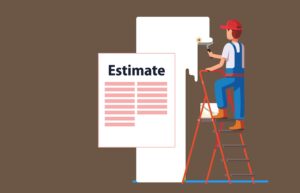Effective financial management is essential to operating a profitable construction company. In this industry, keeping track of costs, managing budgets, and guaranteeing profitability are all crucial responsibilities. Construction organizations progressively use contemporary tools and technological solutions to expedite these operations. We’ll look at five of the most valuable modern technologies for construction financial management in this blog, including accounting software and job costing software developed especially for this industry.
1. Job Costing Software
A key component of construction finance management is job costing. It involves maintaining track of the expenses related to every project, enabling more precise cost control and budgeting. This procedure can be made simpler with job costing software, which gives construction organizations access to real-time project expense information. The use of task costing software has the following main advantages:
- Precise Cost Monitoring: Construction companies can more easily monitor costs, spot overruns, and successfully manage budgets by using job costing software to assign costs to individual projects.
- Real-time Updates: You can get real-time updates on project expenses by using job costing software. This lets you deal with problems as they arise and change as needed to keep costs under control.
- Cost Allocation: The software gives you a comprehensive analysis of your spending by letting you assign costs to several project categories, including personnel, supplies, equipment, and subcontractors.
- Profitability Analysis: Job costing software assists you in determining the profitability of each job and informing decisions for subsequent projects by monitoring expenses and revenues on a project-by-project basis.
2. Accounting Software for Construction
While many firms can benefit from general accounting software, the construction sector has particular financial requirements. The specific construction accounting software comes with tools and features specifically suited to the needs of the industry. Using accounting software has the following benefits:
- Cost Codes: Using construction accounting software, you may create cost codes that are in line with the organizational structure of your project. This makes it simpler to classify spending and produce precise financial reports.
- Tracking Retainage: Many construction projects involve retainage, a portion of the contract amount withheld until the project’s completion. You may track retainage and release it as necessary using construction accounting software.
- Progress Billing: These systems frequently have progress billing capabilities, allowing you to design and track billing based on the project’s milestones and ensure proper invoicing.
- Integration with Job Costing: The most effective construction accounting software can merge with job costing software with ease, facilitating the exchange of financial information between the two platforms.
3. Cloud-Based Financial Management Platforms
Many construction organizations are switching to cloud-based financial management platforms from traditional, on-premises software in the current digital era. The following are some advantages these platforms provide for construction financial management:
- Accessibility: Cloud-based solutions enable real-time collaboration between project managers, accountants, and other stakeholders, even from remote job sites, as they can be accessible from any location with an internet connection.
- Automatic Updates: The service provider handles software maintenance and updates, relieving your IT department of some of the work and guaranteeing you always have access to the newest features and security enhancements.
- Data Security: Compared to on-site server systems, cloud providers are less likely to compromise your financial data because they frequently invest considerably in security measures.
- Scalability: Cloud-based platforms can readily grow to meet your growing needs as your construction company expands, saving you money on additional infrastructure purchases.
4. Mobile Expense Tracking Apps
Construction projects often involve various costs, such as labor, equipment, and material revenues. Construction workers may now capture and classify these charges. At the same time, mobile expense-tracking apps streamline the process and lower the possibility of misplaced or lost receipts. Mobile spending tracking apps have several advantages, including:
- Real-time Expense Recording: Employees may take pictures of their receipts with their smartphones and upload them to the system. This eliminates the need to keep track of paper receipts and cuts down on reporting delays.
- Integration with Accounting Software: To ensure that all of your expenses are included in your financial records, several mobile expense tracking apps can link with accounting software.
- Decreased Errors: By lowering the possibility of manual mistakes, mobile spending monitoring guarantees the accuracy of your financial data.
- Improved Transparency: By enabling more openness in the expense tracking process, these apps assist accountants and project managers in keeping an eye on expenses and improving budgetary management.
5. Business Intelligence and Reporting Tools
Reporting and data analysis are essential parts of construction finance management. Conversion of unprocessed financial data into valuable insights is made possible for construction organizations by business intelligence and reporting technologies. These instruments provide the following advantages:
- Custom Dashboards: Using business intelligence tools, you can design unique dashboards that show critical financial data and performance indicators to aid decision-making.
- Historical Data Analysis: Construction companies can spot patterns, possible areas for cost savings, and places to increase productivity by looking at their previous financial data.
- Forecasting: Using historical performance data and current project data, these tools let you make financial projections to help you prepare for the future and identify any obstacles.
- Drill-Down Reporting: Comprehensive reports let you delve deeply into data related to a project, assisting you in determining which areas require tweaks to stay within budget.
Conclusion
Construction budgeting is a complex and dynamic process, but modern tools and software solutions, such as those offered by Foundation Software, have made it easier and more efficient than ever. By adopting these cutting-edge technologies, construction companies can boost profitability, cut expenses, and streamline their financial operations—all of which will ultimately contribute to their long-term success in the sector.















+ There are no comments
Add yours